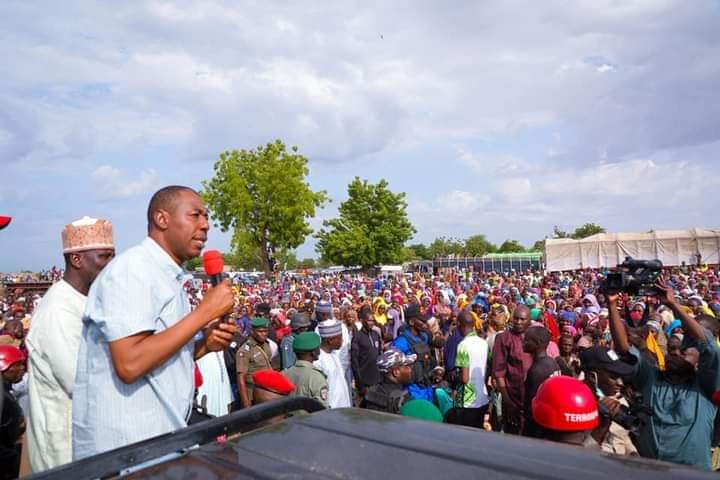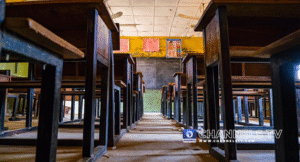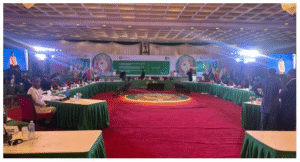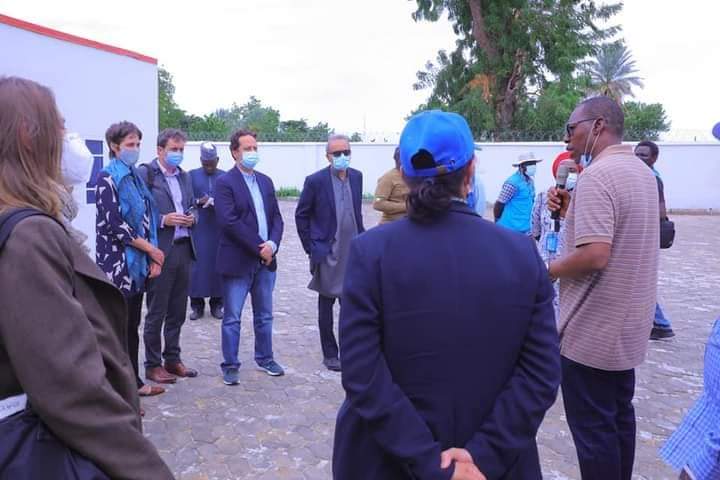
… Shares Food To 18,100 Returnees, Spends Night
Borno State Governor, Babagana Umara Zulum, passed Tuesday night in Banki town of Bama Local Government Area where he received officials of the United Nations (UN) led by Edward Kallon, UN Resident Coordinator and Humanitarian Coordinator in Nigeria.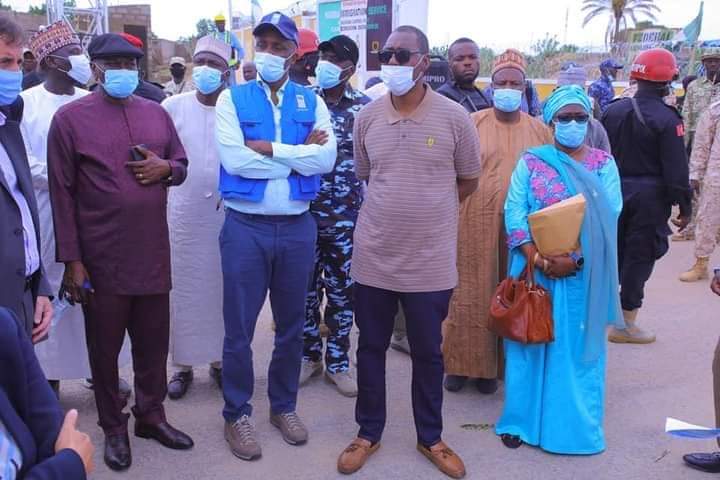
Banki is a major commercial town bordering Nigeria and Cameroon.
The UN officials, who include UNDP’s country representative, were in Banki to assess the Lake Chad Stabilization facility projects. The stabilization projects were launched on July 17, 2019, to facilitate the implementation of a regional strategy for the stabilization, recovery and resilience of areas of the Lake Chad Basin affected by Boko Haram attacks, championed by the Lake Chad Basin Commission (LCBC).
The delegation inspected four ongoing projects: construction of a police station and barracks, customs office and barracks, 500 housing estates and 5.3km boarder wall fence.
The projects are being executed by Borno State Government through the regional stabilization for Lake Chad Basin region.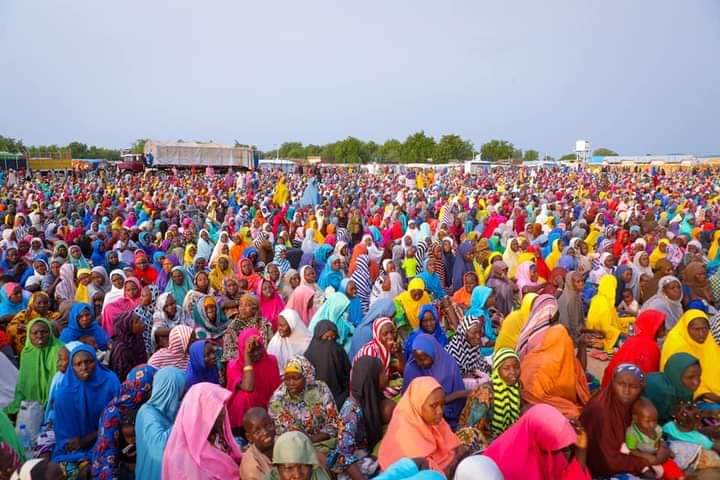 Governor Zulum, who arrived at the town Tuesday evening before the UN officials arrived Banki on Wednesday, had supervised the distribution of tokens that will give access to 18,100 families whose livelihoods had been affected by Boko Haram insurgency, received varieties of food items.
Governor Zulum, who arrived at the town Tuesday evening before the UN officials arrived Banki on Wednesday, had supervised the distribution of tokens that will give access to 18,100 families whose livelihoods had been affected by Boko Haram insurgency, received varieties of food items.
Each of the 18,100 families is expected to receive a bag of 25kg rice, a bag of 25kg beans and a bage of maize grit.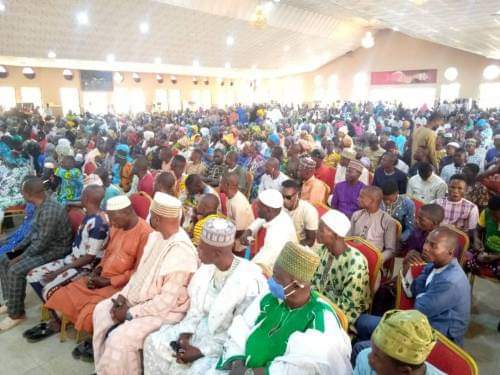 The governor also ordered the distribution of varieties of food items to the volunteers supporting the Nigerian military in the fight against terrorism.
The governor also ordered the distribution of varieties of food items to the volunteers supporting the Nigerian military in the fight against terrorism.
Part of the food items, the governor explained, was donated by the federal government, through the Nigerian Customs Service, NEMA, NEDC an other parastatals.
Zulum interacted with hunters, vigilantes and the Civilian Joint Task Force. He identified some of them with injuries from battles with insurgents and ordered special medical care for them.
The Governor held series of meetings with security operatives and formations in order to roll out modalities that facilitate access to farmers return to their farmlands.